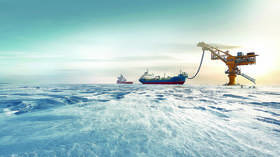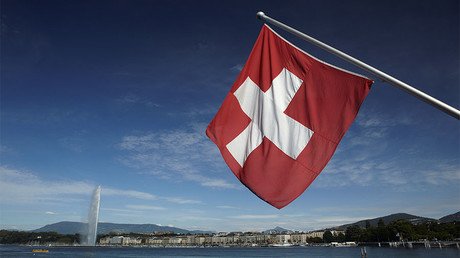Russia invites BRICS partners to join country’s massive Arctic oil & gas projects

Russia’s Minister of Energy Alexander Novak has invited fellow BRICS member countries to participate in Russia’s energy development projects in the Arctic.
Novak said hydrocarbon reserves in the Russian Arctic are estimated at 7.33 billion metric tons of oil and 50.45 trillion cubic meters of natural gas. That is 24.7 percent and 72.1 percent of Russia’s total recoverable reserves, respectively.
According to Novak, who held a video conference meeting with the BRICS ministers of energy last week, Russia ranks first in the world in terms of proven reserves. Last year, the country became one of the top five global LNG producers, and by 2035 Russia is expected to increase production from the current 29 million to 140 million metric tons of LNG per year.
The Russian energy minister said that natural gas will be one of the most promising and environmentally friendly hydrocarbons of the 21st century and that in the foreseeable future, conventional energy sources will continue to account for the most significant part of the global energy balance.
Also on rt.com Russia to set up oil deposits cluster to tap huge Arctic energy reserves“According to the BRICS Energy Research Cooperation Platform forecast, by 2040, the share of fossil energy sources will account for more than 70 percent of our countries’ energy balance,” he said.
“I invite our BRICS partners to participate in the implementation of joint oil and gas projects in the Arctic. We are already cooperating with non-Arctic states such as Japan, China and France,” he added.
He explained that Arctic hydrocarbons have a significant competitive advantage due to the convenience of the Northern Sea Route as the shortest sea route to bring Arctic hydrocarbons to consumers. According to Novak, four out of eight new liquefaction plants planned in Russia will be located in the Arctic (Obsky LNG, Arctic LNG, Arctic LNG 2 and Arctic LNG 3). Two will be built in Russia’s Far East (Far East LNG and Vladivostok LNG), and another two on the Baltic Sea coast (Baltic Chemical Complex and LNG Portovaya).
For more stories on economy & finance visit RT's business section














